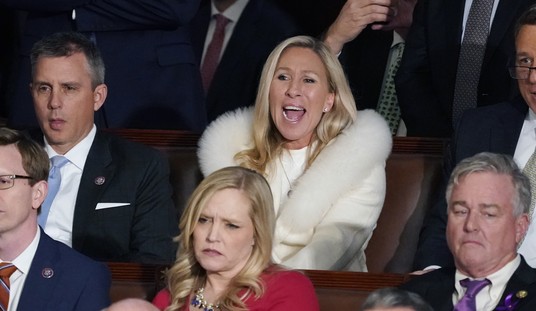Without fanfare elements of a new cold war are being put into place by the Trump administration, the European Union and China. Although the disconnected components separately make headlines, the underlying pattern is evident despite the carnival-like distractions of the Mueller investigation and the reluctance to declare the old order dead.
The most obvious indicators are military. After decades of focusing on low intensity,War on Terror conflict the Army is frantically retooling to face a great power opponent (read Russia) in Europe. The Navy, after decades of deploying single carriers to predictable peacetime schedules is now fielding the fleet as if it had to face an actual enemy.
A typical carrier deployment from Norfolk follows a predictable cycle. Those days might soon be coming to an end.
Defense Secretary Jim Mattis has offered a very different vision for how the Navy will be used in the future … What Mattis is after is less predictability, a desire to keep potential adversaries on their toes, preserve the ability to surge strike groups to nontraditional places at unexpected times, as well as the ability to do so on short notice.
Not only is the US Air Force openly embarking upon space operations the British are too.
A second indicator is the growing restriction on the international movement of data, scientific personnel and the re-officialization of news. A Foreign Policy article described the new visa limitations on Chinese scientists as part of “a global cold war over tech … the State Department is expected to adopt new limitations on Chinese researchers in the United States, including the shortening of student visas in high-tech fields and additional security clearances for work visas. This new measure comes on the heels of the National Defense Authorization Act in May, which included a murky provision prohibiting Defense Department grants from going to researchers who participate in China’s talent recruitment programs.”
Even the nascent trade war has a cold war dimension. “A trade war could be brewing, with tit-for-tat tariffs being applied by the US and China, spurred by Donald Trump’s concerns about China stealing American IP” wrote the MIT Technology Review. The erection of the US border wall, the breakdown of Europe’s refugee policy and even Brussels’ plan to create its own army are all subtle signals the world whose image of intactness president Obama sought to preserve is moving into a new and possibly darker phase.
It did not happen overnight. The roots of today’s new tensions have roots deep in Obama’s and even George W. Bush’s term. Yet so great was the establishment’s commitment the post Cold War order it seemed irresponsible or unlucky to admit things were breaking down even when they manifestly were. Time and again when challenged by China’s naval island building, Russia’s expansion into the Ukraine, Beijing’s theft of the classified OPM database, the shootdown of MH17 and the disintegration of Syria, Obama with remarkable sang froid maintained the air of business as usual.
Ben Rhodes in his account of how Obama drew a Red Line in Syria then erased it, described how avoiding the perception of crisis was so important to his boss. “We in the Obama administration stepped up to the brink of military action against Assad. And then, suddenly, we stepped back.” Rhodes wrote:
I wanted to do something about the catastrophe in Syria, just as I had advocated intervention in Libya. … It was as if Obama was finally forcing me to let go of a part of who I was—the person who looked at Syria and felt that we had to do something, who had spent two years searching for hope amid the chaos engulfing the Arab world and the political dysfunction at home. …
I saw what he had been doing—testing Congress, testing public opinion, to see what the real maneuvering room was for his office when it came to intervention in Syria. … On the flight home, Obama mentioned that he’d had a private conversation with Putin on the margins of the summit. … This time, Obama again suggested working together to remove and destroy Syria’s chemical weapons.
He reposed his trust in Putin because … what else could he do? Obama’s observation that “maybe we never would have done Rwanda” caught the essential sense of helplessness of the 44th president. While he may have sensed that the post WW2 order was grinding to an end and the fruits of Ronald Reagan’s victory over the Soviet Union were sliding from his grasp, though the era was dying Obama could not bring himself to bury it.
It seemed better to put on a brave face than do anything that might hasten the decline. As Christopher Layne put it in a 2012 issue of the Atlantic “the United States can manage this relative decline effectively over the next couple of decades only if it first acknowledges the fundamental reality of decline”. The important thing was “not to do stupid shit”.
In what was perhaps the most ironic instance of this policy of masterful inactivity Jeh Johnson revealed Obama was actually aware of Russian hacking but decided against making an issue of it lest it “delegitimize the election process”. Rhodes relates in his recent book how:
Mr. Obama to respond[ed] to criticism that he should speak out more about Russian meddling. “I talk about it every time I’m asked,” he responded. “What else are we going to do? We’ve warned folks.”
Mr. Obama and his team were confident that Mrs. Clinton would win and, like much of the country, were shocked when she did not. “I couldn’t shake the feeling that I should have seen it coming,” Mr. Rhodes writes.
Perhaps Obama saw it coming but simply couldn’t face the irrevocable step of acknowledging it. The liberal world order was too precious a legacy for Obama to risk losing it on his watch. Paradoxically the election of Donald Trump may have come as a relief. The dying old world could finally expire at the Donald’s hands and whatever confrontations ensued could begin withal without history would burdening Obama with responsibility.
In retrospect the Mueller investigation is an act of belated atonement for all that never was; the collusions unprevented; the hacks unchallenged, the challenges so artfully evaded. But there’s an investigation. As an act of statecraft investigation can at best be retributive but as a symbol of absolution still everything to a man who sees himself judged on the stage of fate. The old world order may be gone yet if Obama’s investigation finally bags Trump and the Donald remembered monstrously enough then perhaps despite his omissions some justification can still be his.
Obama apparently left the Oval Office convinced history would exonerate him. The day after Hillary’s defeat “Mr. Obama focused on cheering up his despondent staff. At one point, he sent a message to Mr. Rhodes saying, ‘There are more stars in the sky than grains of sand on the earth.’” That’s a sword which may yet cut both ways. In a reminder of business yet unfinished tens of thousands of Chinese gathered in Hong Kong to remember Tienanmen Square and new photographs of that long ago day hidden for 28 years have emerged to haunt us.
The tears of man are as multitudinous as the drops of water in the ocean. Neither the stars in the sky nor the sands of the earth were created to stand still.
Follow Wretchard on Twitter
For a list of books most frequently purchased by readers, visit my homepage.
Support the Belmont Club by purchasing from Amazon through the links below.
Books:
The Second Machine Age: Work, Progress, and Prosperity in a Time of Brilliant Technologies, by Erik Brynjolfsson and Andrew McAfee. This book reveals the forces driving the reinvention of our lives and our economy. As the full impact of digital technologies is felt, we will realize immense bounty but also experience wrenching change. Professions of all kinds – from lawyers to truck drivers – will be forever upended. Companies will be forced to transform or die. Recent economic indicators reflect this shift: fewer people are working, and wages are falling even as productivity and profits soar. Drawing on years of research and up-to-the-minute trends, MIT’s Brynjolfsson and McAfee identify the best strategies for survival and a new path to prosperity.
Open Curtains: What if Privacy were Property not only a Right, by George Spix and Richard Fernandez. This book is a proposal for bringing privacy to the internet by assigning monetary value to data. The image of “open curtains” is meant to suggest a system that allows different degrees of privacy, controlled by the owner. The “curtains” may be open, shut, or open to various degrees depending on which piece of data is being dealt with. Ultimately, what is at stake is governance. We are en route to control of society by and for the few rather than by and for the many, because currently the handful of mega tech companies are siphoning up everyone’s data, for nothing, and selling it. Under the open curtains proposal, government would also pay for its surveillance in the form of tax rebates, providing at least some incentive for government to minimize its intrusions … (from a review by E. Greenwood).
Skin in the Game, by Nassim Nicholas Taleb. In his new work, Taleb uses the phrase “skin in the game” to introduce a complex worldview that applies to literally all aspects of our lives. “Never trust anyone who doesn’t have skin in the game. Without it, fools and crooks will profit and their mistakes will never come back to haunt them,” he says. In his inimitable style, he pulls on everything from Antaeus the Giant to Hammurabi to Donald Trump to Seneca to the ethics of disagreement to create a jaw-dropping tapestry for understanding our world in a brand new way.
For a list of books most frequently purchased by readers, visit my homepage.
Did you know that you can purchase some of these books and pamphlets by Richard Fernandez and share them with your friends? They will receive a link in their email and it will automatically give them access to a Kindle reader on their smartphone, computer or even as a web-readable document.
The War of the Words, Understanding the crisis of the early 21st century in terms of information corruption in the financial, security and political spheres
Rebranding Christianity, or why the truth shall make you free
The Three Conjectures, reflections on terrorism and the nuclear age
Storming the Castle, why government should get small
No Way In at Amazon Kindle. Fiction. A flight into peril, flashbacks to underground action.
Storm Over the South China Sea, how China is restarting history in the Pacific
Tip Jar or Subscribe or Unsubscribe to the Belmont Club










Join the conversation as a VIP Member